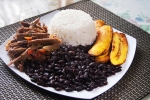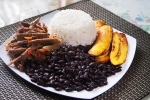November 2021
Joy and Gratitude
Here Am I
Then Mary said, "Here am I, the servant of the Lord; let it be with me according to your word.” – Luke 1-38a, NRSV
“Here am I.” These are grounding words for me this Advent season, as my husband and I are just a couple months away from welcoming twin girls into the world. When I first began this expectant journey, I could not have imagined how very keenly my body would make me aware that I am here.
Here, in the present moment
Here, in my growing, changing body
Here, open to the unfolding events that will, God willing, bring two new people earthside.
This has been a season of physical grounding as my body expands, and an accompanying, spiritual grounding as I grow into motherhood. Pregnancy has placed limitations on me, even as it has given me a greater sense of gratitude for the gift of here – for love generously extended, for relationships that sustain me, for every single sacred breath.
A tender place
Breath. It is a gift I do not take for granted. Last Advent, I was recovering from two pulmonary embolisms. The blood clots would have ended my life without the prompting of Spirit to seek help and the thorough medical care I subsequently received. I am grateful to be here a year later, with breath in my lungs and two babies on the way. Here is a place of awe. Every breath is a reminder of this truth.
To be sure, here does not always feel like the place I want to be. Here has been marked by nausea and fatigue and twice-daily shots to manage my blood clotting disorder. Here can be lonely and anxious, punctuated by crises of identity and shifts in relationships. Here is sometimes a place of lament, especially for and with those loved ones who have known infertility, miscarriage and other forms of loss on their journeys.
For all of us, as joyful as our “Here am I” might be in one moment, it is inevitably followed by sleepless nights and labor pains as we struggle to bring into the world the God-given gifts gestating within us. Here is a tremendously tender place. Situating ourselves here, we expose ourselves to feeling, really feeling, the heaviness of the suffering unfolding all around us – the cascading waves of pandemic grief, the endless violence of white supremacy, the despair of ecological disaster.
All that is waiting to be born in us is happening in the same breathas so much suffering. At times, it is simply too much. Surely even Mary pondered the heavy reality of bringing her baby into this world full of pain.
Fraught and holy
For my part, I struggled to find hope while riding out a first-trimester hormonal surge that covered everything around me in depressing shades of grey. Meanwhile, Mary’s here was set against the stigma of being an unmarried mother, living under the shadow of the Roman empire, its exploitative taxation system requiring her to make the long, hard journey to Bethlehem, all while well-along in her pregnancy. Many mothers today experience a complete lack of support when facing postpartum depression and anxiety, along with an absence of socioeconomic safeguards like paid family leave, making the path after pregnancy fraught with dangers to physical and mental health. What is worse, society seems to expect pregnant people to bear these excessive burdens with meek, uncomplaining acquiescence.
Motherhood is, and always has been, as fraught as it is holy. It is transcendent and bodily, it is the source of life, and it can kill you. It is the site of our greatest reverence, as well as the target of some of our greatest societal venom.
Where is God here? Where, in this landscape of anxiety, pain and uncertainty, can joy be found?
There were times in the past when I joined my voice with the naysaying chorus questioning the prudence – even the morality – of the decision to bring a child into the world. Why burden a child with the weight of our world’s injustices, especially given the current trajectory of climate change? But now, as an expectant parent myself, I am inclined to agree with a friend of mine, a gifted hospice chaplain, who recently welcomed her own little one. She says that having children is an act of hope, and as long as there is beauty in the world, she wants to share it with her son.
Willing participants in God’s story
There is something deeply subversive about this position; this defiant clinging to a hopeful story running counter to commonly held (and completely understandable) despair over the verysadstateoftheworld. “Here am I” may be heard by some as a last gasp from the tomb. But for those who believe, it is a lively cry emerging from the womb of the Holy One. It is an audacious assertion of life’s goodness. It says, “I am still here!”
I am reminded of those soul-swelling words from Maya Angelou’s poem “Still I Rise—”
You may write me down in history
With your bitter, twisted lies,
You may trod me in the very dirt
But still, like dust, I’ll rise.
Mary's "Here am I" and Angelou's "Still I rise" are bold words, not born of naiveté, but of faith. They emerge from that childlike space within our soul that still trusts in God’s good story in spite of all the violence the soul has known. In the Holy Here of God’s kairos time, all things have already come to perfect fruition according to the divine will. Here, Christ is at once ever-crucified and ever-risen. Here, in our very bodies, broken, blessed and shared, God is with us, healing us and bringing us new life.
Here we have the opportunity to recognize, as Mary did, that God is at work in the world, and in ourselves. Should we open ourselves to the possibility of God’s presence, we might also become vessels of the Holy – servants of the Lord, joining with God in bringing about the world of which God dreams.
By presenting ourselves as ones willing to participate in God’s story, we accept the vulnerability and weightiness of the work that being here requires. Here, we live in the both/and, where we do not deny current challenging circumstances, yet trust that whatever our circumstance, God is here and God is for us.
“Here am I” – what an honest and authentically human response to the divine will! We are creatures of earth, after all, fragile and dependent on God for our every breath. We are time-bound, while God both works in and transcends time. It is ours to simply say yes to God, for wherever we find ourselves, God is already here.
With joyful trust this Advent, let us open ourselves to this humble and blessed station we inhabit as human beings. May its truth course through our beloved bodies – God dwells in us. Here.
The Rev. Lauren Grubaugh Thomas (she/her) serves as Associate Rector for Formation and Discipleship at St. Timothy’s Episcopal Church in Centennial, Colorado. She has found joy throughout this pandemic season in designing creative opportunities for connection and faith-sharing across generations. Her ministry also includes serving as a Kaleidoscope Institute dialogue facilitator, Spanish-English translator, member of the Clergy Emergency League Steering Committee and co-founder of the Resistance School, through which she teaches spirituality and strategies of nonviolent social change to people from around the world.
Resources:
- Ten Advent Resources for 2021 by ECFVP Editorial Team, ECF Vital Practices blog, November 22, 2021
- The Quiet Center: Cultivating Inner Peace in Unsettling Times, an ECF Vital Practices webinar presented by Rebecca Roberts, April 1, 2020
- Self-care in a Pandemic by Sandra Montes, Vestry Papers, November 2020
- The Reverend Jemonde Taylor Shares Five Advent Resolutions by The Rev. Jemonde Taylor, ECF Vital Practices blog, December 16, 2020






